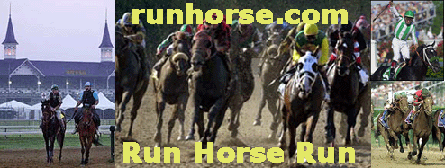
Let’s face it - any sports that take place outside are affected by weather conditions. Some sports simply cancel or delay play in bad conditions (like cricket), whilst others - like marathons, for example, go ahead come hell or high water.
That being said, weather plays a massive role in horse racing, and it can affect all different aspects of the sport, from the condition of the track to the performance of the horses. Horse racing events take place year-round in the UK and Ireland - and it’s fair to say that we are famed for our unpredictable weather conditions, even in the heights of summer. In horse racing, this is a very important factor to consider as different weather conditions can lead to all sorts of challenges and outcomes.
Here, we will take a deeper look at exactly how weather impacts horse racing - and what both horse trainers, racers and, of course, punters need to consider when the weather takes a turn.
- Fast Track: As the name suggests, this is the perfect condition for racing, usually dry and firm.
- Good Track: This is slightly less firm than a fast track but still great for an impressive performance.
- Muddy Track: When there has been recent rain, there could be a wet track with some moisture, but it’s not too sloppy.
- Sloppy Track: If there has been heavy rain recently, then there may be a track holding a lot of moisture.
- Heavy or Slow Track: These are extremely wet conditions - and the track can make racing much more difficult.
- Firm or Hard Track: On the opposite end of the spectrum, extremely dry and hard conditions are also not ideal as they can be tough on horses' legs.
Unsurprisingly, wet or sloppy tracks can be physically draining for horses - which could lead to tired muscles and the potential for injury.
You would need to consider factors such as a horse's past performance on similar tracks along with how the jockey adapts to different conditions. What’s more, if it’s raining on the day, it could also impact visibility and affect the jockeys' ability to put their race strategies into play.
Ultimately, weather is a massive factor in horse racing - with trainers, jackets and punters all having to adjust their strategies accordingly. It can have a massive impact on the outcome of a race.
Click Here For Complete List Of Articles - If you enjoyed this content, please like us on facebook below, to receive more great free horse racing information.